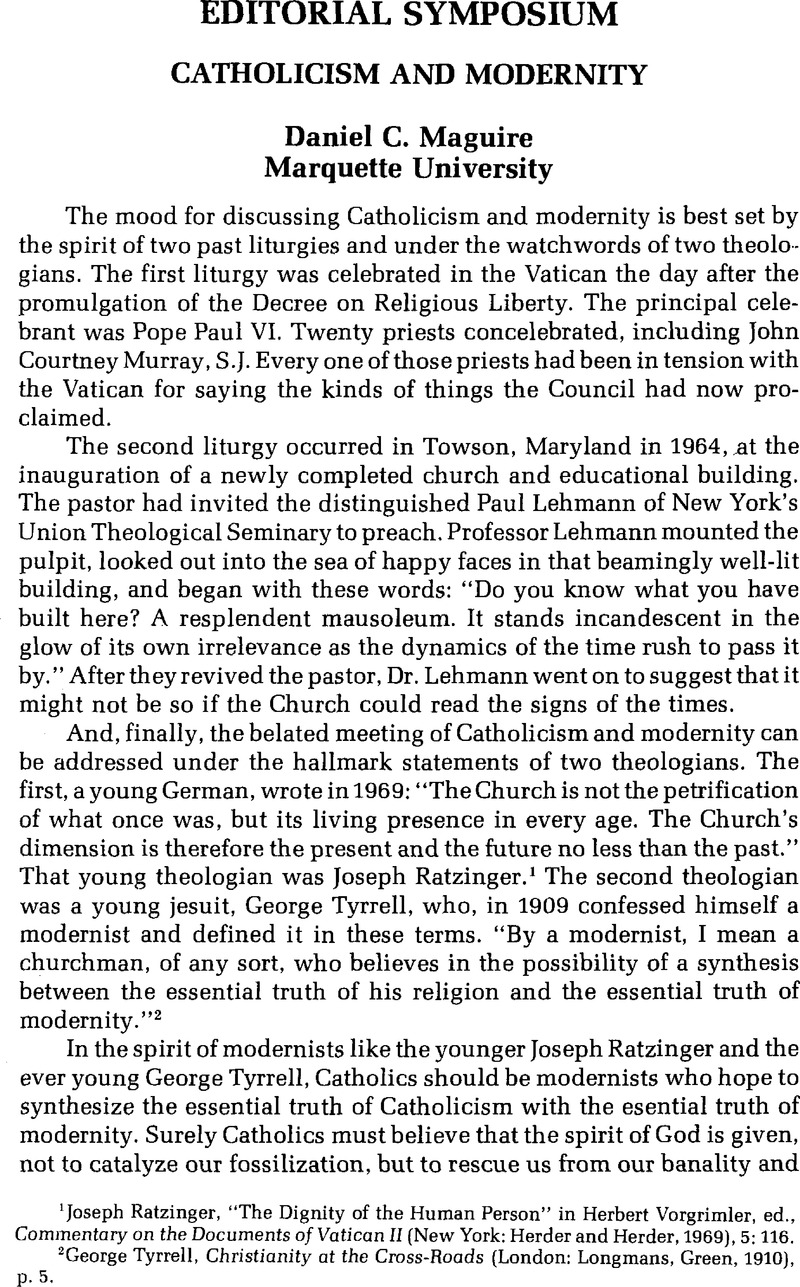No CrossRef data available.
Published online by Cambridge University Press: 09 September 2014

1 See Dulles, Avery, “The Theologian and the Magisterium,” Proceedings of the Thirty-Fifth Annual Convention of The Catholic Theological Society of America, 31 (1976), 242.Google Scholar See Thomas Aquinas, in 4 Sent., D. 19, q. 2, qua. 2, ad 4; Quodlibet 3, qu. 4, art. 1; Contra impugnantes Dei cultum et relig., chapter 2.
2 Dulles admits that the notion of jurisdiction is culturally derived. He writes that even after the seventeenth century clarifications of the distinctions between secular and ecclesiastical, “still the papacy was studied principally in terms of the category of power. With the development of the doctrine of sovereignty in political theory, primacy came to be seen as the supreme jurisdiction enjoyed by the ruler of a ‘perfect society’” (The Catholicity of the Church [Oxford: Clarendon Press, 1985], pp. 137–38Google Scholar). Now that other paradigms of society are available, what is to prevent ecclesiology from correcting the absolutism that negatively affected the theological definition of Church offices?
3 Dulles, Avery, The Survival of Dogma (Garden City, NY: Doubleday, 1971), p. 193.Google Scholar
4 Ibid.
5 Dulles, , Catholicity of the Church, p. 144.Google Scholar
6 Gilkey, Langdon, Catholicism Confronts Modernity (New York: Crossroads, 1975), p. 70.Google Scholar
7 See Maguire, Daniel C., The Moral Revolution (New York: Harper & Row, 1986).Google Scholar